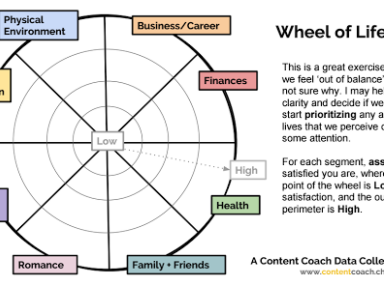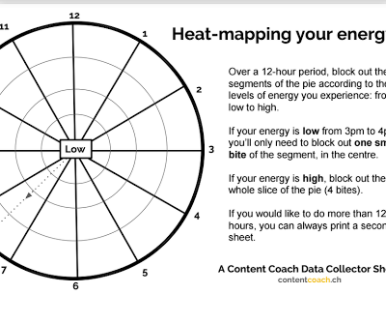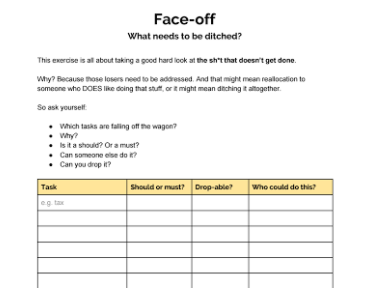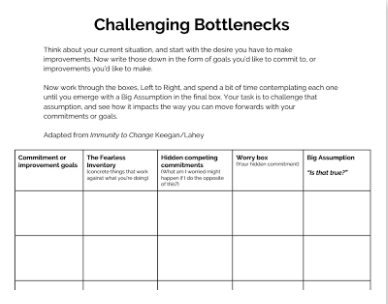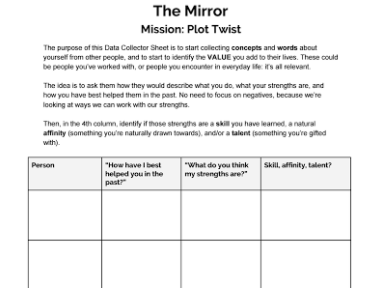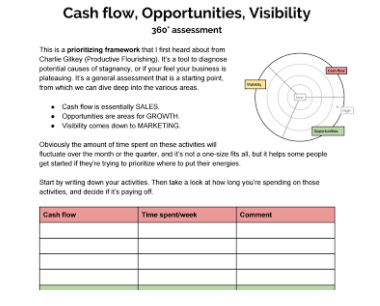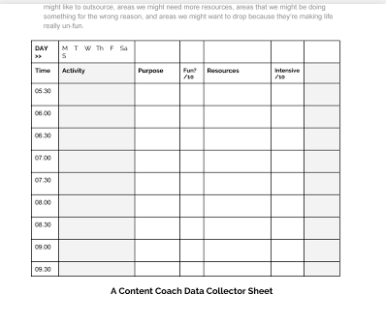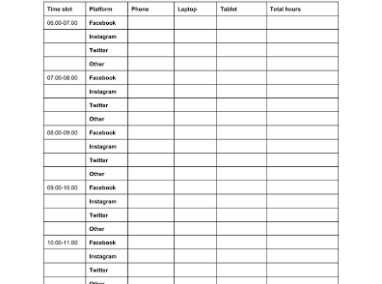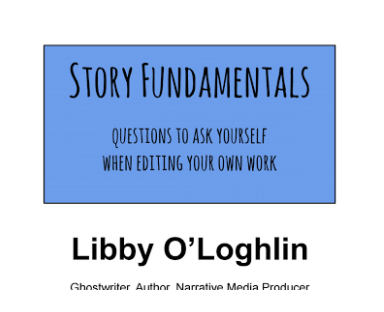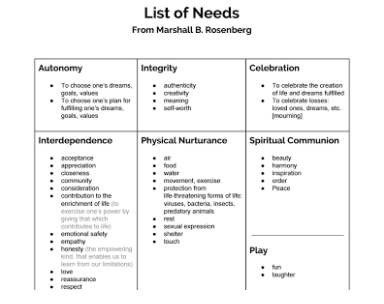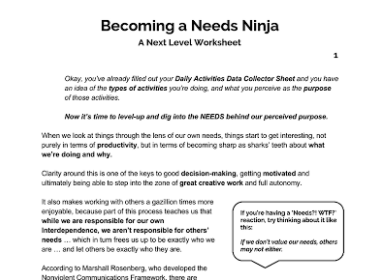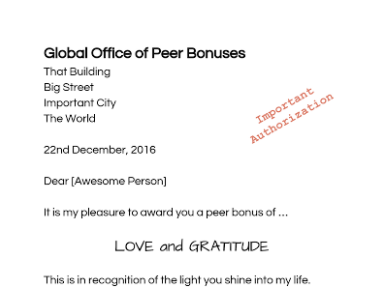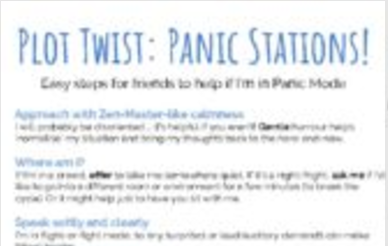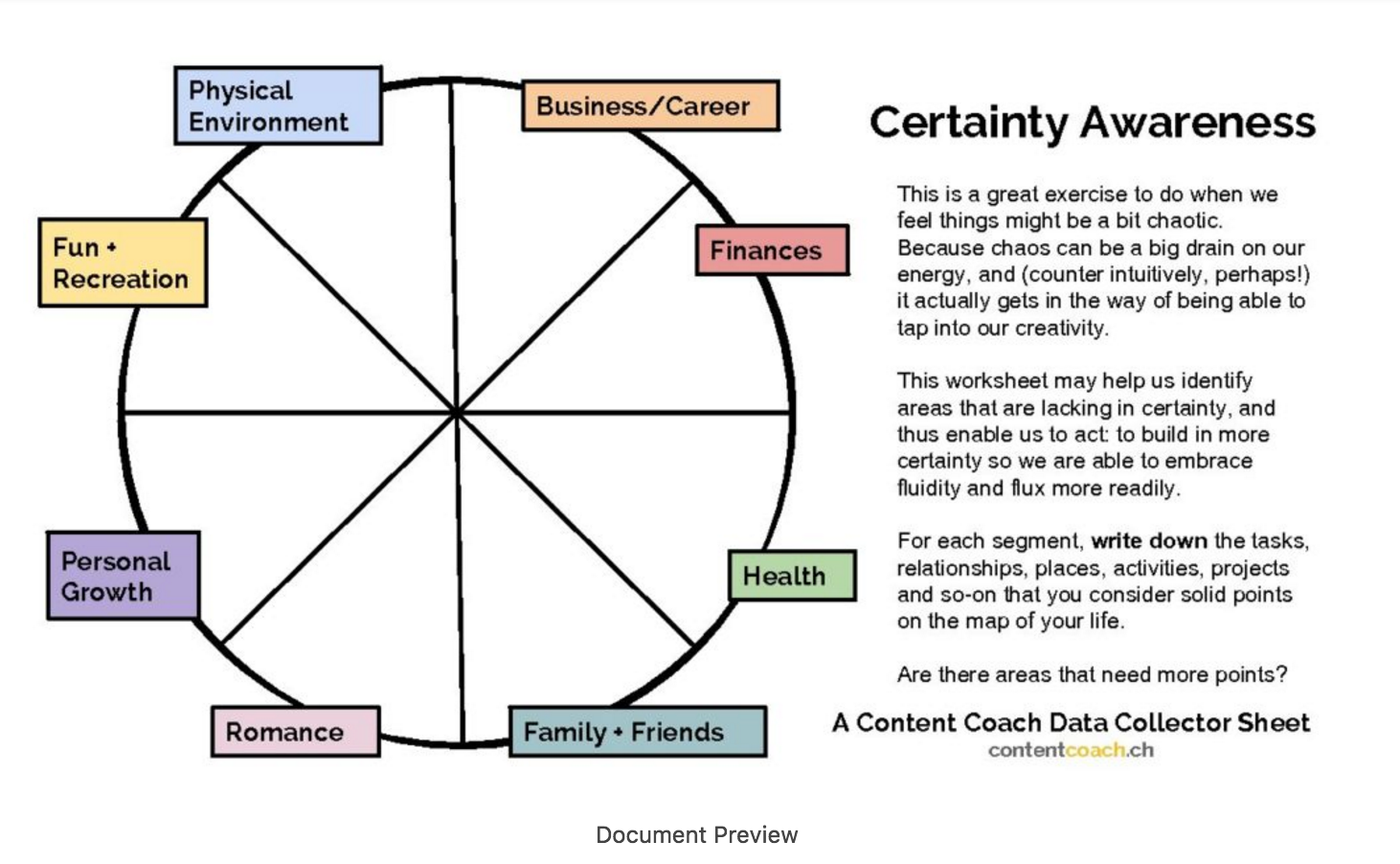Yes, you may notice I love spreadsheets and visual mapping!
Below are some resources (PDFs) that you are free to view in your browser and download. I’m always very keen to hear feedback, so feel free to drop me a line and let me know how you go with them!
There are also a few extra bonuses in there that aren’t strictly around productivity but might contribute to having a nice life. 🙂
Wheel of Life is a good one for getting an overview of the attention you’re paying to different areas of your life. Sometimes it’s useful to see the areas we are neglecting, in order to regain balance.
Heat Mapping is a way of tracking your energy over the day. It can help to find the sweet spot for when you’re most able to do your creative work, or when you might be best off going for a jog.
Face-off/Quick-draw. This worksheet tracks the different tasks we have on our plate, and draws attention to the ones that keep on getting bumped to the bottom of the list. It gets us to look at WHY, start thinking about whether we might need to get someone else to do those jobs, and think in terms of which task would win if they were facing each other off in the Wild West.
The Mirror is a way of collecting data about the way other people see us and our skillset/talents/gifts. It can be helpful when we’re (re)branding, or even just when we’re needing a reality check from people around us. Because we are usually WAY off target when we’re trying to imagine the way other people see us! 🙂
Cash-flow, opportunities, visibility. This is a neat framework for getting some perspective on where we might need to focus our attention for our business. Because usually it’s one of these 3 areas.
Daily Activities. This one tracks, well, our daily activities. You get to ascribe a fun-factor score, and look at the things you naturally gravitate towards … as well as those you don’t.
Story Fundamentals: Questions to ask yourself when you’re editing your own work. Technically, this one’s for fiction writers, but there are some good questions that you can ask of any narrative you’re putting together. (Positioning, Point of View, Central Question, etc.)
The Delta Quadrant Storyworld Vortex. This one’s an ‘after the fact’ worksheet to do as a reflection, after a situation where you were lost in your emotions (fear, anxiety, anger), and didn’t quite manage to kick serious professional butt on demand. You get to reflect on it, and think about ways to be more aware of your thoughts in the future.
This is based on Marshall Rosenberg’s (NonViolent Communications dude) List of Needs. It’s a useful way to look at the needs of humans (um, ourselves), and it can be a good list to revisit if you feel like you might need to re-calibrate your warp core to aim yourself in the right direction.
Become a Needs Ninja is for those of us who are a bit skeptical about the whole ‘Needs’ thing. We might not have thought about our own needs before, or it might make us uncomfortable. This worksheet walks us through a few ways we can start thinking about how our needs might be affecting the way we go about our everyday activities.
Peer Bonus of love and gratitude. Maybe you’re grateful for someone’s help or support but you’re not in a position to give them a spot-bonus of cash … This one’s for you! Click on the image above, or this link to go to the shared document, where you can download it in whatever format you like so you can tailor it to your needs. (Actually, maybe this one is my favourite.)
Panic Stations! is an informational sheet that you can print out to have on hand if need be. It was developed after talking with teenagers who are dealing with anxiety, and observing they’ve had challenges around communicating what exactly a panic attack is, and what you’re supposed to do when someone near you is in a state of panic. (Also in German.)
Certainty Awareness is a great exercise to do when we feel things might be a bit chaotic. Because chaos can be a big drain on our energy, and (counter intuitively, perhaps) it actually gets in the way of being able to tap into our creativity. This worksheet may help us identify areas that are lacking in certainty, and thus enable us to act: to build in more certainty so we are able to embrace fluidity and flux more readily.

